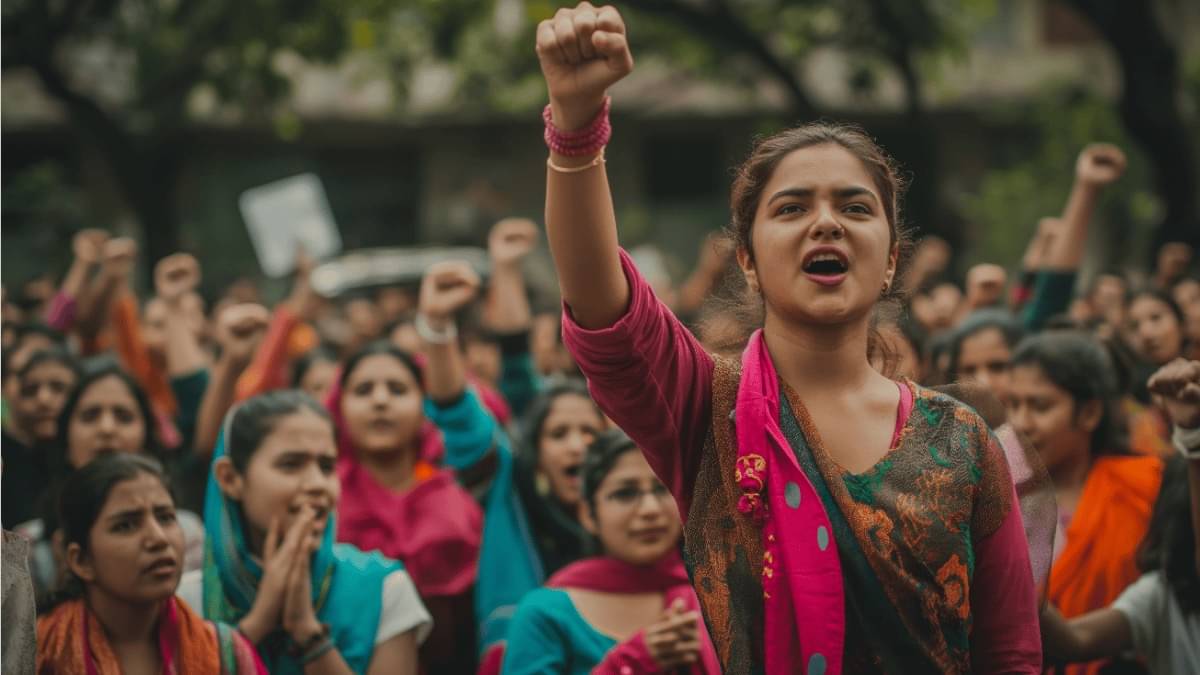Should RWAs Have Mandatory Representation for Women, Just Like Panchayats? | Image:
AI- Representational
Every Indian household knows who keeps it running. Women juggle budgets, ensure children’s safety, manage domestic staff, balance bills, and still find time to build community. They are the invisible CEOs of our homes.
Yet, step into the Resident Welfare Association (RWA) meeting of almost any colony or housing society, and you will encounter a different reality. A table full of men, voices raised over parking allotments, security guard timings, or which vendor should be allowed inside. Women, if present at all, sit quietly in the back—or are absent altogether. The gap is not subtle; it is structural.
RWAs are the mini-parliaments of urban India. They decide what affects us daily—water supply, cleanliness of parks, garbage collection, street lighting, safety protocols, and cultural events. They are our closest form of governance, often more relevant to our lives than municipal corporations or state assemblies. And yet, unlike Panchayats in villages, RWAs have no provision for women’s representation.
This begs a simple but powerful question: Should RWAs, too, mandate representation for women, just as Panchayats do?
Lessons from Rural India
When India introduced 33% reservation for women in Panchayati Raj Institutions, many doubted its impact. Critics dismissed it as tokenism, assuming male relatives would dominate from behind the scenes. But reality turned out to be very different. Across states, women sarpanches transformed governance priorities. They focused on safe drinking water, education, sanitation, healthcare, and safety—issues directly affecting families but historically ignored.
Today, nearly 1.5 million women serve as elected representatives in Panchayats across India. The ripple effect is undeniable: increased female political participation, rising aspirations of young girls, and more inclusive governance at the grassroots.
If reservation could revolutionize rural governance, why can’t it do the same for our cities?
Why Women Matter in RWAs
RWAs are not about grand speeches or party politics. They are about the basics of everyday living. And in those basics, women have unmatched expertise.
Financial Prudence: Who stretches household budgets, negotiates with vendors, and ensures every rupee counts? Women. Their financial acumen can translate into more responsible society accounts.
Safety First: Women understand the importance of well-lit pathways, secure gates, and safe play areas for children. Their voices can make security policies sharper.
Cleanliness & Health: Women are at the frontline of waste segregation, hygiene, and health routines at home. Their leadership in RWAs can push for greener, cleaner neighborhoods.
Community Spirit: Festivals, welfare drives, and social harmony are often sustained by women. Formalizing their role in RWAs will strengthen community ties.
RWAs, if inclusive, can become powerful laboratories of participatory democracy. If exclusive, they remain old boys’ clubs—where decision-making is a performance of power rather than a service to community.
The Male Club Problem
Why don’t women participate as much? Not because they lack capability, but because the system is built to exclude them. RWA elections are often dominated by cliques of men nominating and voting for one another. Meetings are held late at night or in intimidating settings. Bylaws rarely specify gender inclusion, leaving it to chance.
This isn’t just neglect—it’s a systemic flaw. It mirrors the broader problem of women’s underrepresentation in political and professional leadership. India has 14% women in the Lok Sabha, some state assemblies with barely 5–7%, and corporate boardrooms still struggling with gender balance. Should we let RWAs—the most immediate form of governance—repeat the same mistake?
Why This Reform Is Urgent
Urban India prides itself on being modern, progressive, and global. But our housing societies tell another story. They are still governed like patriarchal fiefdoms. Ironically, while cities debate ESG policies, sustainability, and inclusive leadership in boardrooms, our RWAs—their closest expression of civic governance—operate without even a whisper of gender equity.
Introducing mandatory women’s representation in RWAs could be the simplest yet most transformative reform for urban governance. Imagine a rule: no RWA executive committee is valid unless at least one-third of its members are women. Overnight, the agenda would shift. Safety, child-friendly spaces, waste management, eco-initiatives, and social welfare would move up the list.
The Call We Cannot Ignore
We cannot keep celebrating women as leaders of Fortune 500 companies, fighter pilots, and chief ministers, while denying them leadership in the very societies they live in. The contradiction is too stark.
Mandatory representation for women in RWAs is not about charity or tokenism. It is about justice, efficiency, and common sense. It is about recognizing that the people who already run our households with skill and foresight deserve an equal seat at the table when decisions are made for our communities.
The Panchayats taught us that reservation works—not by silencing men, but by broadening perspectives and reshaping priorities. Our cities need to learn the same lesson.
So here’s the real question: if women can lead villages, corporations, and nations, why not our housing societies? Isn’t it time the mini-parliaments of urban India opened their doors to the voices that have been silent for too long?

